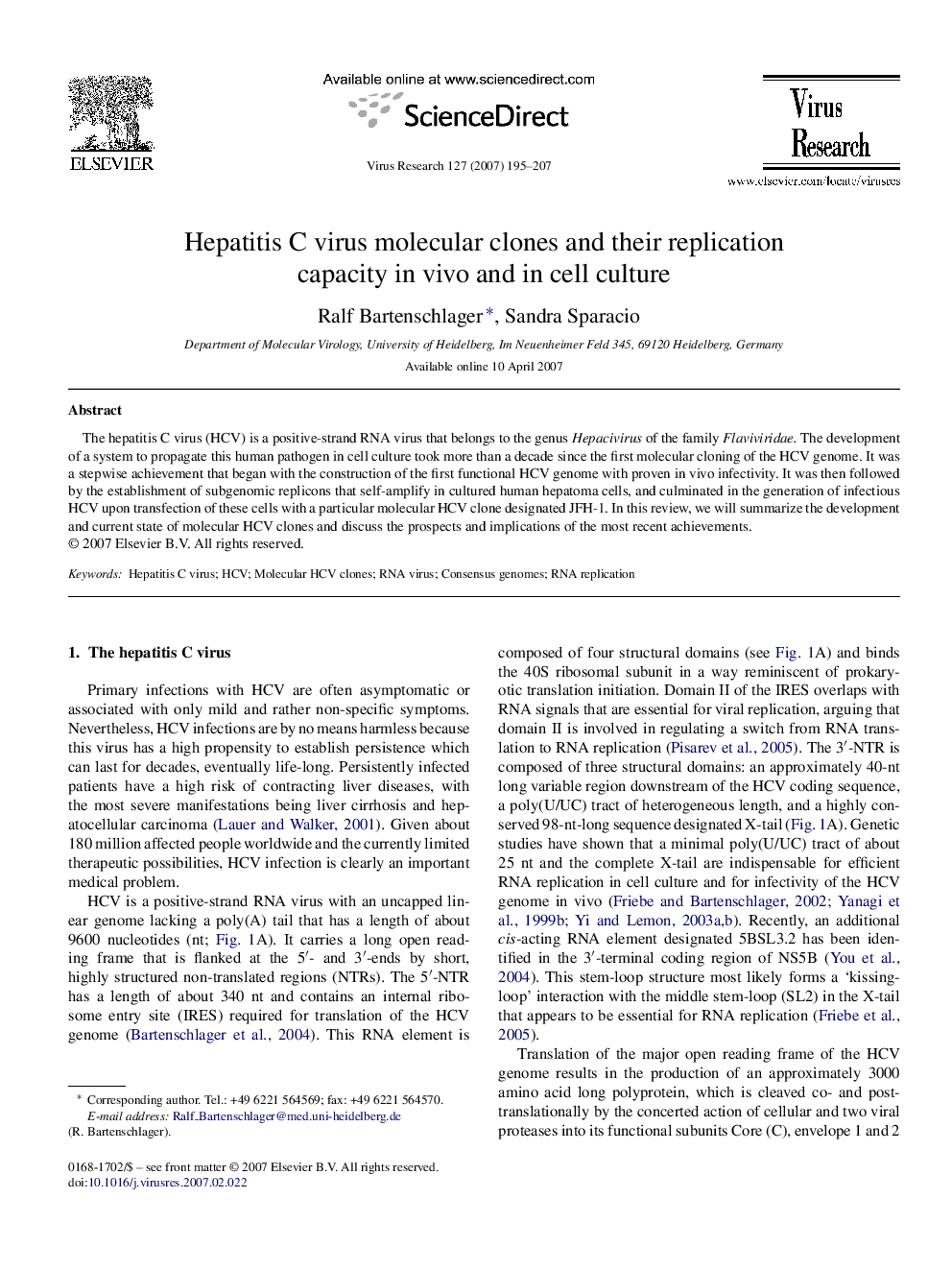| Article ID | Journal | Published Year | Pages | File Type |
|---|---|---|---|---|
| 3430739 | Virus Research | 2007 | 13 Pages |
The hepatitis C virus (HCV) is a positive-strand RNA virus that belongs to the genus Hepacivirus of the family Flaviviridae. The development of a system to propagate this human pathogen in cell culture took more than a decade since the first molecular cloning of the HCV genome. It was a stepwise achievement that began with the construction of the first functional HCV genome with proven in vivo infectivity. It was then followed by the establishment of subgenomic replicons that self-amplify in cultured human hepatoma cells, and culminated in the generation of infectious HCV upon transfection of these cells with a particular molecular HCV clone designated JFH-1. In this review, we will summarize the development and current state of molecular HCV clones and discuss the prospects and implications of the most recent achievements.
